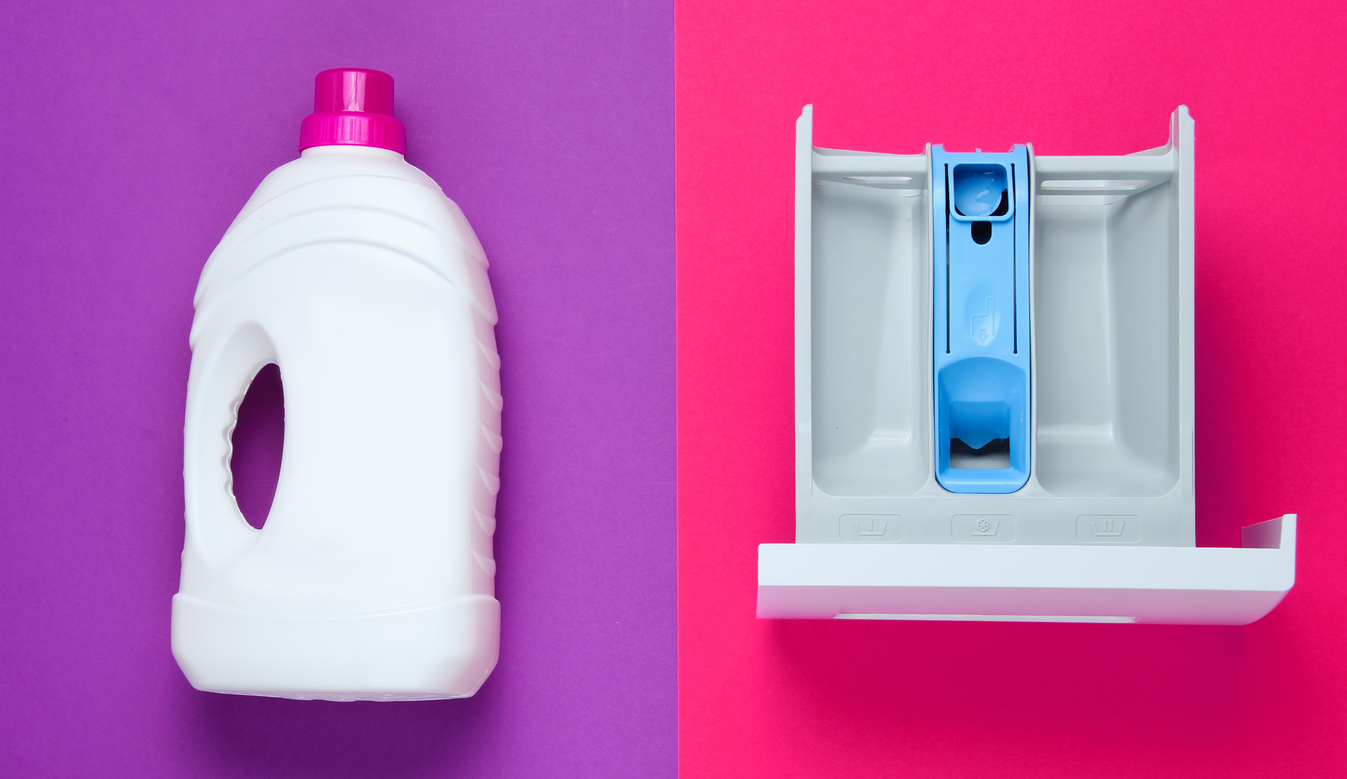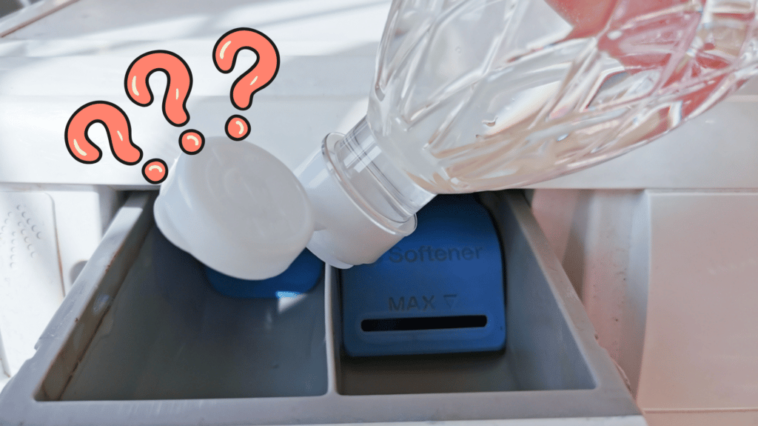We continue to praise the many benefits of using white vinegar in the washing machine. This cleaning, descaling and deodorizing product allows you to descale this household appliance while taking care of clothes and household linen. Used during washing, it will gently sanitize and disinfect laundry, soften it without using fabric softener, restore shine to whites and preserve colors, but also to deodorize fabrics ( bad smells of perspiration, gasoline, etc.). Finally, it acts as a stain remover which complements the action of the liquid or powder detergent you use. However, to benefit from all these benefits, you still need to know how to use white vinegar and in which compartment to pour it. Grandma explains everything to you in detail.
You will see: it depends above all on the use you intend to make of it!
Where to put vinegar to soften laundry?
Here, it’s very simple! Simply pour your glass of vinegar into the compartment usually dedicated to fabric softener. You can also add a glass directly into the drum, within the laundry for an even more effective effect. Then all you have to do is start the wash. You will find soft, disinfected and perfectly clean clothes thanks to its countless properties.

Where to put vinegar to clean your washing machine?
A dirty, dirty washing machine uses much more energy than a clean, well-maintained machine because it requires more water and electricity to function properly. A regular maintenance also helps ensure the durability of your equipment. To do this, remember to clean the filters following the instructions and apply white vinegar to the joints to remove stains and prevent the appearance of mold. Then rinse with clean water. Note that using vinegar as a fabric softener also perfects this regular maintenance.
For a deeper cleaning (about once a month in case of hard water to once every three or four months for less hard water), pour a glass of vinegar into the softener tank, then empty the rest of the bottle into the drum . You can then start the hottest program (around 90°C), empty.
Does white vinegar damage the washing machine?
We know: vinegar is rich in acetic acid. As such, it cannot be used on all materials, starting with marble, granite and natural stones which it risks stripping. It is therefore legitimate to wonder if it presents the slightest risk for our household appliances! However, rest assured: vinegar is diluted in water and does not sit on its components long enough to alter them. So this means that he will remove limescale and tartar accumulated in the device without harming it. The same goes for joints, which we hear a lot say don’t support it. And yet, this myth is false for the reasons we have just mentioned. These rubber parts therefore pose absolutely no risk!


